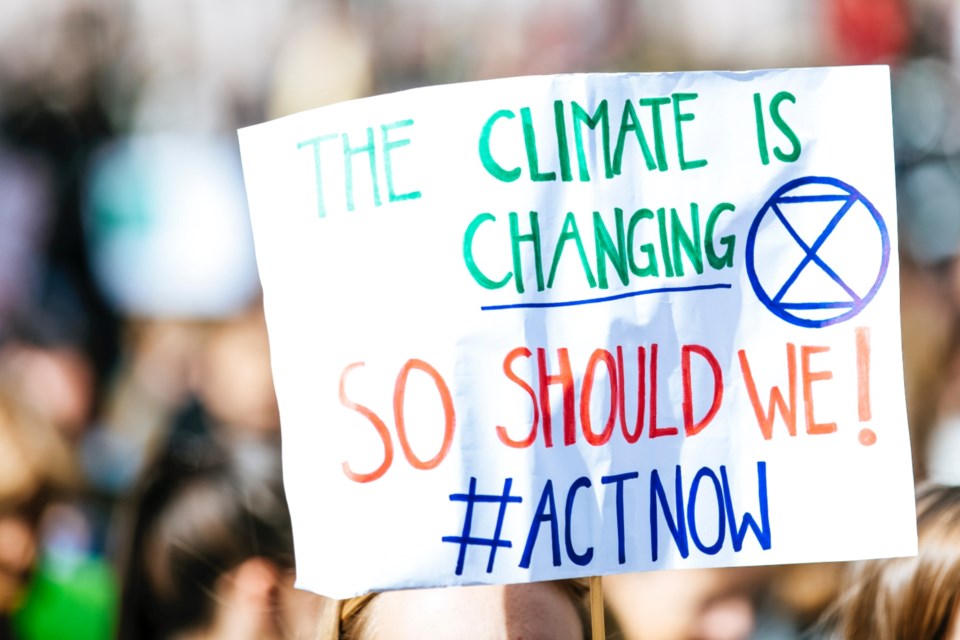In partnership with Climate Change Newmarket-Aurora, NewmarketToday brings you a regular series of columns aimed at creating awareness and engaging our community to take action on climate change.
Climate change: Is it real?
After severe, major hurricanes in the United States and Cuba, unprecedented flooding in Spain leaving hundreds dead or missing, and recent wildfires in California, this seems like a strange question. While the extreme weather effects are certainly real to those who lost homes, possessions and loved ones, there are still many people who question whether our climate is changing and why.
In the aftermath of the U.S. election, showing a strong rejection of environmental concerns, is it time for groups such as Climate Action Newmarket-Aurora to re-evaluate the way we try to present a message of concern for the need to prepare for climate change? While the effects of rising greenhouse gas emissions are clear to us now, as we see the negative environmental consequences, it is also true that they have been a byproduct of many positive improvements in human living conditions.
Concerns of American and Canadian voters revolve around jobs, quality of life and affordability. The environment is not top of mind for most people, yet the economic potential of a green transition will create more jobs, lower bills, and limit the impact on households, which will bear the brunt of climate change costs if we do nothing.
However, there is still some disagreement among Canadians as to whether human activities are the main cause of climate change. In Alberta, the ruling United Conservative Party leader, Premier Danielle Smith, has made a commitment to double oil and gas production. At the party’s annual general meeting this November, party members approved a resolution to abandon the province’s emissions-reduction targets and recognize carbon dioxide as “a foundational nutrient for all life on Earth.”
The influence of American culture and politics on Canadians will always be strong, and we are bound to feel those effects in the coming years. As the incoming administration takes a hard shift away from the goals of the 2015 Paris Agreement and doubles down on oil and gas extraction and consumption, Canada will feel the pressure to increase our production of fossil fuels, especially if there is a shift in our next election.
Moreover, vulnerable populations must be supported through policies like retraining for workers in fossil fuel industries and ensuring that the impacts of climate change do not deepen financial and social inequality.
This makes the urgency of the Paris Agreement even more critical. Its goals — limiting global temperature rise to well below 2 C, with efforts to limit it to 1.5 C above pre-industrial levels by the end of this century — remain our best hope for mitigating catastrophic climate change. To limit global warming to 1.5 C, greenhouse gas emissions must peak before 2025 at the latest, and decline by 43 per cent by 2030. Canada has just started to see a decreasing trend in its emissions, but the new emissions cap on the oil and gas sector will be by far a game changer in the right direction.
The Paris Agreement itself is a landmark achievement — a legally binding accord that brings nations together to combat climate change and adapt to its effects. Yet, if the world’s most powerful country opts out and rejects the science, there will be consequences for the entire world.
Misinformation and climate denial is hindering progress, particularly through media and political leaders. The science is clear and we must push back against false narratives.
What have we achieved so far? Since the Paris Agreement came into force, low-carbon solutions and new markets have emerged. More countries, regions, cities, and companies are establishing carbon neutrality targets. Zero-carbon solutions are quickly becoming competitive across economic sectors. We can’t stop now. We must continue to move forward.
COP 29, the 2024 United Nations Climate Change Conference, is currently underway in Azerbaijan. The theme this year is ‘In Solidarity for a Green World.’ This includes grassroots movements and individual actions that hold political policy accountable and can empower people.
Yes, climate change is real and won’t wait on politics. We know what we must urgently do collectively to meet the challenge of lowering emissions of greenhouse gases to protect future generations that will bear the consequences more than us.
Climate Action Newmarket-Aurora will continue to advocate for an end to fossil-powered energy and a just transition to proven, sustainable energy sources as well as ways everyone can reduce their carbon footprint.
Inspired by the international organization Project Drawdown, Climate Action Newmarket-Aurora seeks to engage citizens, institutions, and policymakers in actionable and measurable solutions to stop catastrophic climate change as quickly, safely and equitably as possible. You can contact them at [email protected], and follow them on Facebook and Instagram.

.jpg;w=120;h=80;mode=crop)

